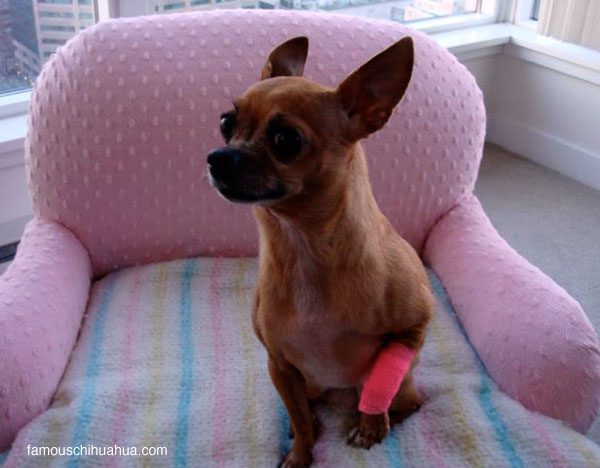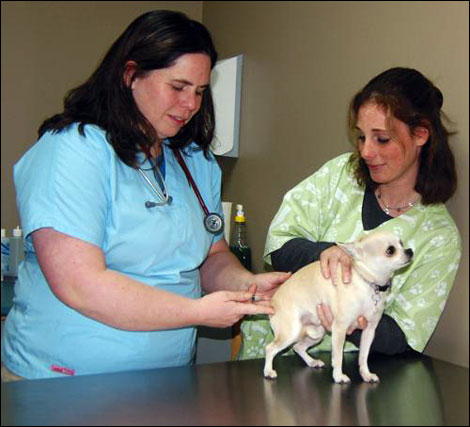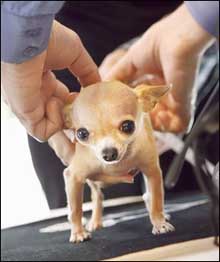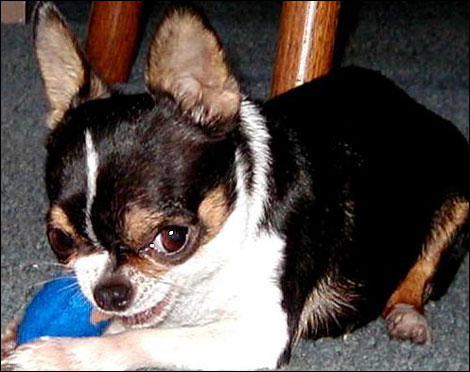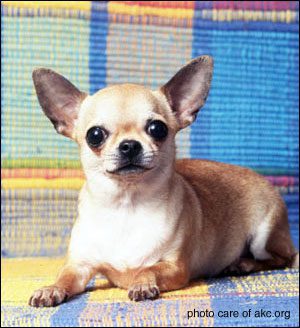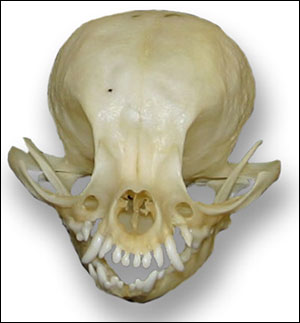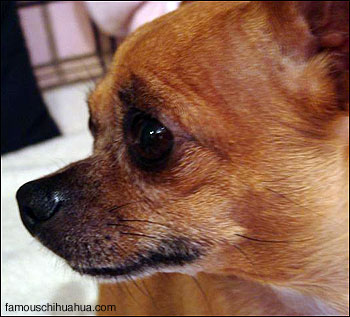your chihuahua can not explain its symptoms, so it’s your responsibility to keep him or her healthy and to determine whether or not they need veterinary care. chihuahuas tend to want to hide their illness, so it is up to you to check your chihuahua for abnormalities.
it is also a good idea to learn the best kept secrets to proper chihuahua care in the comfort of your own home, at your own pace and to learn simple health tips that could potentially save your chihuahua’s life in an emergency. this is a must for any chihuahua owner! the ultimate guide to taking care of your chihuahua contains all of this helpful chihuahua care information as well as valuable information for new chihuahua buyers and breeders.
indications of a “sick chihuahua” include:
- lethargy
- disorientation
- weakness
- weight loss
- seizure
- lack of appetite
- vomiting
- diarrhea
- unproductive retching, straining to urinate
- bloody urine
- difficulty or inability to walk
- bleeding, pale mucous membranes
- difficulty breathing and persistent cough
you know your chihuahua best and can often notice subtle early warning signs that someone else may not detect. if you notice any of the mentioned symptoms or other signs, call your veterinary hospital immediately, do not wait! your chihuahua must be examined.
be prepared: questions your veterinarian may ask
your veterinarian may ask additional questions to help localize or diagnose the problem. it may help to be prepared to answer some of the following questions:
- how long have you owned your chihuahua?
- where did you get your chihuahua (adoption center, breeder, previous stray)?
- what other type of pets do you have?
- what is the age of your chihuahua?
- has your chihuahua experienced any previous illnesses?
- is your chihuahua currently under treatment for an illness or disease?
- what preventative medications is your chihuahua currently taking?
- does your chihuahua receive consistent flea treatment?
- are any other pets ill?
- has he/she been vaccinated? if so, when? which vaccines?
- have there been any recent pet acquisitions?
- have there been any recent activities such as boarding, grooming, trip to the park?
- is a majority of your chihuahua’s time spent indoors or outdoors?
- have there been any recent changes in diet or eating habits?
- what brand of food, how much and how frequently does your chihuahua eat?
- what type of table scraps are offered and how frequently?
- what type of treats are offered and how frequently?
- how much water does your chihuahua typically drink per day?
- have there been any recent changes in water consumption?
- have you noticed any coughing or sneezing?
- have you noticed any lumps or bumps on your chihuahua?
- is your chihuahua urinating normally?
- is your dog having normal bowel movements?
- when is the last time he/she had a bowel movement?
- have you noticed any recent weight loss or weight gain?
after answering some general questions, more specific questions need to be answered. a brief cursory exam of your chihuahua at home can help you determine the answers. these questions are also commonly asked when chihuahua owners are seeking help over the phone.
be prepared to answer the following questions, depending on the problem with your chihuahua:
regarding the eyes
- have you noticed an increase or decrease in tear production?
- do the eyes appear cloudy or red?
- have you noticed any discharge coming from the eyes?
- do the eyes appear bloodshot?
- are the pupils the same size in both eyes?
- have you noticed your chihuahua rubbing or pawing at the eyes?
- is your chihuahua squinting?
- do the eyes appear to be sunken or excessively protruding?
regarding the ears
- do you notice any swelling or discharge from the ears?
- are the ears drooping when they normally stand erect?
- are the ears red and inflamed?
- do you notice any odor to the ears?
- is your chihuahua rubbing or pawing at the ears?
- have you noticed a lot of head shaking?
- have you noticed any pain or crying when you rub or scratch your chihuahua’s ears?
regarding the nose
- have you noticed any congestion, sneezing or coughing?
- have you noticed any blood coming from the nose?
- have you noticed any nasal discharge?
regarding the mouth
- have you noticed any swelling of the lips or tongue?
- have you noticed any bleeding from the mouth?
- what color are the gums – tissue just above the teeth?
looking inside the mouth
- are there any foreign objects such as bones or sticks stuck on the roof of the mouth or around the teeth?
- is your chihuahua able to open and close the mouth normally?
- is there any pain involved in opening or closing the mouth?
- have you noticed any excessive drooling or foaming at the mouth?
- is your chihuahua able swallow food normally?
regarding the chest
- is your chihuahua experiencing any difficulty breathing?
- have you noticed excessive panting?
- is there any pain when the chest area is petted?
- have you noticed any recent coughing?
- is the heartbeat steady and consistent?
- what is the heart rate?
place your hand or your ear on the left side of your chihuahua’s chest, just behind the elbow. you should be able to feel or hear the heartbeat. count how many beats the heart pumps in one minute.
regarding the abdomen/stomach area
- has your chihuahua been having any diarrhea or vomiting?
- is your chihuahua able to eat and drink normally?
- does the abdomen/stomach area appear swollen or distended?
- does your chihuahua appear to be in pain when the stomach area is petted?
- is your chihuahua known to chew on non-food items such as clothing, towels, rocks, or other items?
regarding the urinary and reproductive systems
- have you noticed any difference in urinating?
- does your chihuahua seem to strain to urinate or cry in pain?
- does your chihuahua repeatedly try to urinate with no urine produced?
- is there any blood in the urine?
- how frequently does your chihuahua urinate?
- is your female chihuahua spayed?
- has your female ever had puppies? if so, at what age?
- if your female is not spayed, when was her last heat cycle and was she bred?
- do you notice any discharge from the vaginal area?
- is your male chihuahua neutered? if so, at what age?
- do you notice any discharge from the penis?
- if your chihuahua is not neutered, do you notice any swelling of the testicles?
- have you noticed your chihuahua excessively licking or grooming the genital area?
regarding the musculoskeletal system – bones and joints
- have you noticed any limping?
- are any legs or joints swollen?
- has your chihuahua been excessively licking at one area of his/her legs?
- does your chihuahua show signs of pain when walking?
- is your chihuahua able to walk normally?
- does your chihuahua walk on his/her knuckles?
- does your chihuahua drag any legs when walking?
- does your chihuahua seem to be in pain when petting him or her?
by supplying the answers these questions, your veterinarian will be in a much better position to help your chihuahua. additional tests may be necessary to find out what the problem is, but the answers to the above questions can greatly narrow the area of concern.
please note that famous chihuahua is providing this information to chihuahua owners as a guide so you know when to take your chihuahua to see your veterinarian.
the editor of famous chihuahua would like to encourage chihuahua owners to follow this advice as their rule of thumb as to when to take their chihuahua to the vet:
if at any time your chihuahua is showing signs or symptoms of illness and discomfort, don’t wait, just go the vet!
